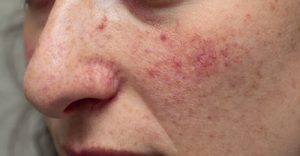Aspartame Faces Scrutiny as Possible Carcinogen
In a groundbreaking development, the International Agency for Research on Cancer (IARC), an arm of the World Health Organization (WHO), is reportedly set to declare one of the world’s most common artificial sweeteners, aspartame, as “possibly carcinogenic to humans.”
This decision could have significant implications for the food industry, which widely uses aspartame in products like Coca-Cola diet sodas, Mars’ Extra chewing gum, and some Snapple drinks. This follows updates to WHO’s guidelines on non-sugar sweeteners and their impact on weight control.
What is Aspartame?
Aspartame is a low-calorie artificial sweetener used in a variety of foods and beverages. It is approximately 200 times sweeter than table sugar (sucrose). Regulatory agencies from around the world, such as the US Food and Drug Administration (FDA), the Joint Expert Committee on Food Additives (JECFA) of the World Health Organization (WHO) and Food and Agriculture Organization (FAO), and the European Food Safety Authority (EFSA), have reviewed aspartame.
It is widely used as a sugar substitute in thousands of foods and drinks globally, including cereals, sugar-free chewing gum, low-calorie (diet) soft drinks, and table-top sweeteners. In the human body, aspartame breaks down into three components: aspartic acid, phenylalanine, and methanol, all of which are naturally present in common foods.
The IARC’s Decision on Aspartame and Its Impact
The International Agency for Research on Cancer (IARC) recently completed its review process on the potential carcinogenicity of aspartame. However, it’s important to clarify that the IARC’s role is to identify possible hazards based on available published evidence; it does not assess the safety or risk level of consuming specific products.
Entities like the Joint FAO/WHO Expert Committee on Food Additives (JECFA) typically undertake risk assessments, including the evaluation of acceptable daily intake and dietary exposure, for substances like aspartame. JECFA will provide an updated risk assessment on aspartame in the near future.
Aspartame’s safety has been a contentious issue for years. A recent observational study conducted in France in 2022, involving over 100,000 adults, indicated a slightly increased cancer risk with higher consumption of artificial sweeteners, including aspartame.
Despite these findings, the study was unable to definitively establish aspartame as the direct cause of the elevated cancer risk. Additionally, the reported hazard ratios (HRs) of 1.15 for overall cancer and 1.22 for breast cancer indicate a relatively small yet statistically significant rise in risk related to aspartame consumption. Nonetheless, the study recognised certain limitations, including the potential for selection bias, residual confounding, and reverse causality.
Regulatory Stance and Industry Reaction
For over 30 years, the food and beverage industry has safely utilised aspartame in a variety of products. More than 200 scientific studies and regulatory agencies worldwide have affirmed its safety.
The American Beverage Association has reiterated that there is a broad consensus within the scientific and regulatory community regarding the safety of aspartame. This consensus has been reached repeatedly by food safety agencies globally. The association has also voiced concerns about potential confusion arising from the IARC reviewing aspartame. The IARC is not a food safety agency and its review could be incomplete and potentially misleading to consumers.
In response to the IARC’s decision, the International Sweeteners Association (ISA) has referenced the opinions of food safety authorities worldwide, which have repeatedly confirmed aspartame’s safety. The European Food Safety Authority (EFSA) has carried out the most comprehensive risk assessment ever undertaken, ruling out any potential cancer risk and reconfirming its safety.
The ISA emphasised that IARC’s review of aspartame is not part of a food safety evaluation, as IARC is not a food safety body. The JECFA is expected to update its scientific evaluation of aspartame shortly after the IARC evaluation.
Key Takeaways
While this classification doesn’t evaluate safe consumption levels, it may cause concern among consumers and pressure manufacturers to consider alternatives. The debate around aspartame’s safety is likely to continue, with stakeholders eagerly awaiting further research and guidance.
References
- Artificial sweeteners and cancer risk: Results from the NutriNet-Santé population-based cohort study – PubMed. (2022, March 24). PubMed. https://doi.org/10.1371/journal.pmed.1003950
- Update on IARC Monographs Meeting 134 – IARC. (2023, June 29). Update on IARC Monographs Meeting 134 – IARC. https://www.iarc.who.int/news-events/update-on-iarc-monographs-meeting-134/
- Safety and Approval – Aspartame. (2020, August 11). Safety and Approval – Aspartame. https://global.aspartame.org/en/aspartame-safety-approval/
- Statement by American Beverage on Safety of Aspartame in Response to Reuters UK. (2023, June 29). Statement by American Beverage on Safety of Aspartame in Response to Reuters UK | American Beverage Association. https://www.americanbeverage.org/education-resources/blog/pr/statement-by-american-beverage-on-safety-of-aspartame-in-response-to-reuters-uk/
- F. (2022, June 7). IARC review of aspartame – International Sweeteners Association. International Sweeteners Association. https://www.sweeteners.org/iarc-review-of-aspartame/
- Use of non-sugar sweeteners: WHO guideline. (2023, May 15). Use of Non-sugar Sweeteners: WHO Guideline. https://www.who.int/publications/i/item/9789240073616












